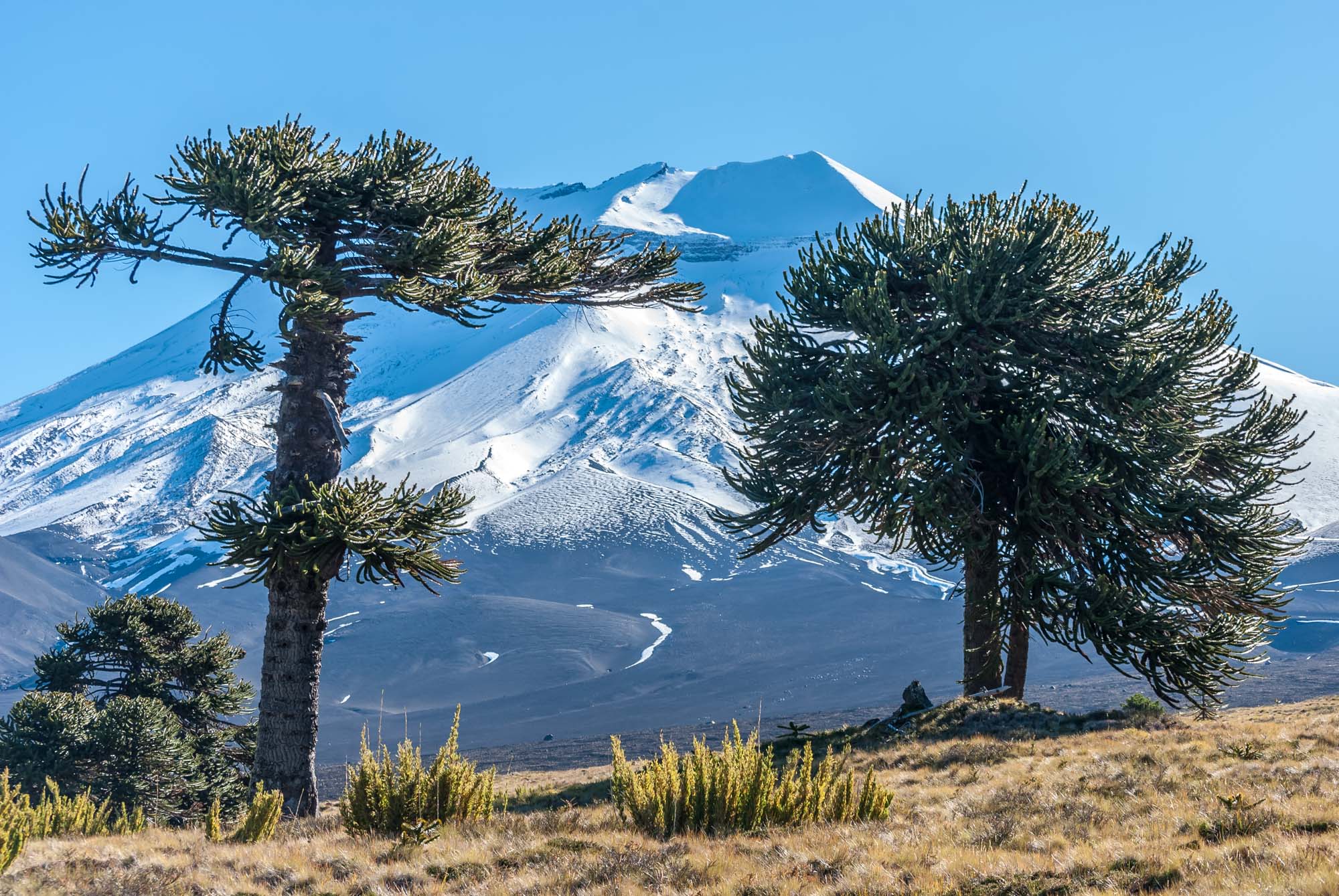Para español u otro idioma, elija la traducción en la parte inferior derecha
Indigenous Mapuche Food Systems and the Importance of Forest Products in Southern Andean Araucaria Landscapes
The araucaria tree - also called the monkey puzzle tree in English and pewen in Mapudungun - is endemic to a small region in the Chilean and Argentinian Andes. Over millennia the Pewenche (the indigenous Mapuche people of the araucaria/pewen forest) have developed an intrinsic relationship with these forests. These forests provide food for both domestic animals and people. They offer numerous food resources, from mushrooms, berries, and the seeds of the pewen. This close relationship between the area's Pewenche and their resources has been affected during the last century by processes such as land grabbing by settlers, or by laws focused on the strict conservation of biodiversity, including the pewen forests within the National Parks.
In the Chilean Araucanía region (named after the araucaria tree) access to communal forests has been restricted and jeopardises the traditional use of the natural resources. In this survey we work with Pewenches to document traditional knowledge about the use of food plants and by-products from the Pewen forests. We document the importance of forest foods to the Pewenche. By documenting this traditional knowledge, we want to support the recovery of food sovereignty for the Pewenche.
With food sovereignty we affirm the rights of people to define their own food systems in ecologically, socially, economically and culturally appropriate ways according to their unique circumstances.
Artisans and tourist enterprises of the Araucaria forest region
During out field work, we met a large number of artisans and owners of small tourist business who rely on the forest landscape. We are so impressed by their dedication and professionalism that we present some of the small businesses here.
We warmly recommend contacting these dedicated artisans and tourist professionals.

